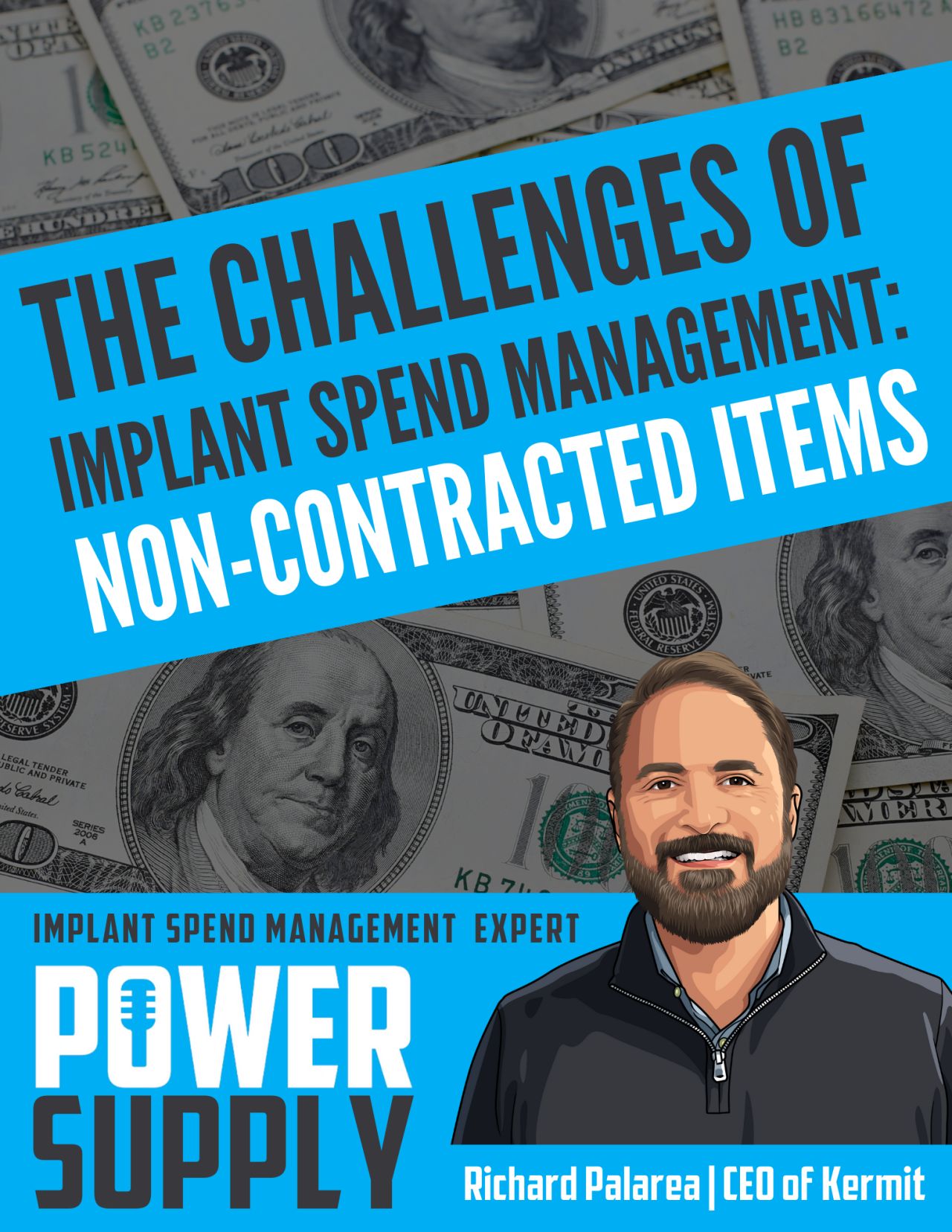This post is an accompaniment to Power Supply's Expert Series TM where Kermit CEO Rich Palarea serves as the Implant Spend Management Expert. The original Power Supply Expert Series post can be found on Power Supply's LinkedIn.
Unlike other supply and spend categories within the hospital, implantable medical devices often also referred to as physician preference items (or PPI) defy most of the common controls used in strategic sourcing to procure, use, and pay. This Expert Series will examine some of the problematic themes of the category’s spend management and how, with just a bit of knowledge, you can use best practices to achieve meaningful and lasting results.
Surgeons Choose and Hospitals Pay
Regardless of how careful supply chain professionals are in sourcing implants, the use of items that were never presented by the vendor during the RFP process is a common occurrence. These items are referred to as “off-contract items.” While most vendors do not purposefully use off-contract items for their own financial gain, their presence in the OR heavily impacts the processes moving forward.
The use of these off-contract items routinely presents delays in the creation of purchasing requisitions, purchase orders, supplier invoice payments, and patient bills. These delays adversely impact revenue cycle management and staff productivity. Because the surgeon is unaware of the contract agreement that was created between supply chain and the vendors, there is no way to stop these items from being used in the OR before ever making it onto a bill sheet for payment.
That is not to mention the biggest impact non-contracted items have on the supply chain and finance: increased costs. When a non-contracted item is used, the cost is not controlled by an agreement or an amendment. While some hospitals have specific contract language that dictates the costs of non-contracted items, this is not often the case, leading to pricing being dictated by the vendor representative. Even if a hospital has specific contract language around the payment of off-contract items, the challenge of tracking those items and ensuring they do not slip through the cracks is time-consuming and labor-intensive.
What Hospitals Need
It all starts with more rigor during the RFP negotiations. Hospitals should have utilization studies on hand for all service lines subject to the negotiations. Vendors should be told to present a bid for all items they plan to sell to your hospital. Anything that is left off the initial bid should be listed and kept track of to avoid the use of these items in the OR. In addition, contract language should be implemented that dictates how much is paid for off-contract items that are used.
After the new contract is in place, hospitals need to ensure they can manage the unique pricing complexities associated with elective surgeries. For example, utilizing a multi-dimensional item master that can associate more than one price per SKU to enforce the different pricing negotiated for using the same item in primary or revision surgery, or if the item is wasted.
It is imperative that all items are loaded correctly into the item master to be referenced at any moment, making the back-end setup a top priority allows for easier management down the line. Knowing that the base you work from is stable and one true source of clean data allows for confident decision-making that in turn creates a much more efficient process. Not having to worry about issues like off-contract items holding up your billing lets you and your team put those hours toward other items that need to be addressed.

